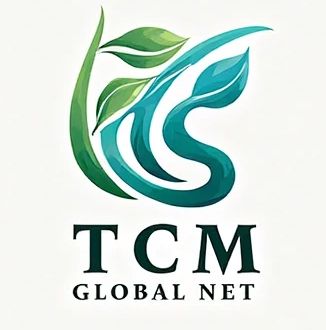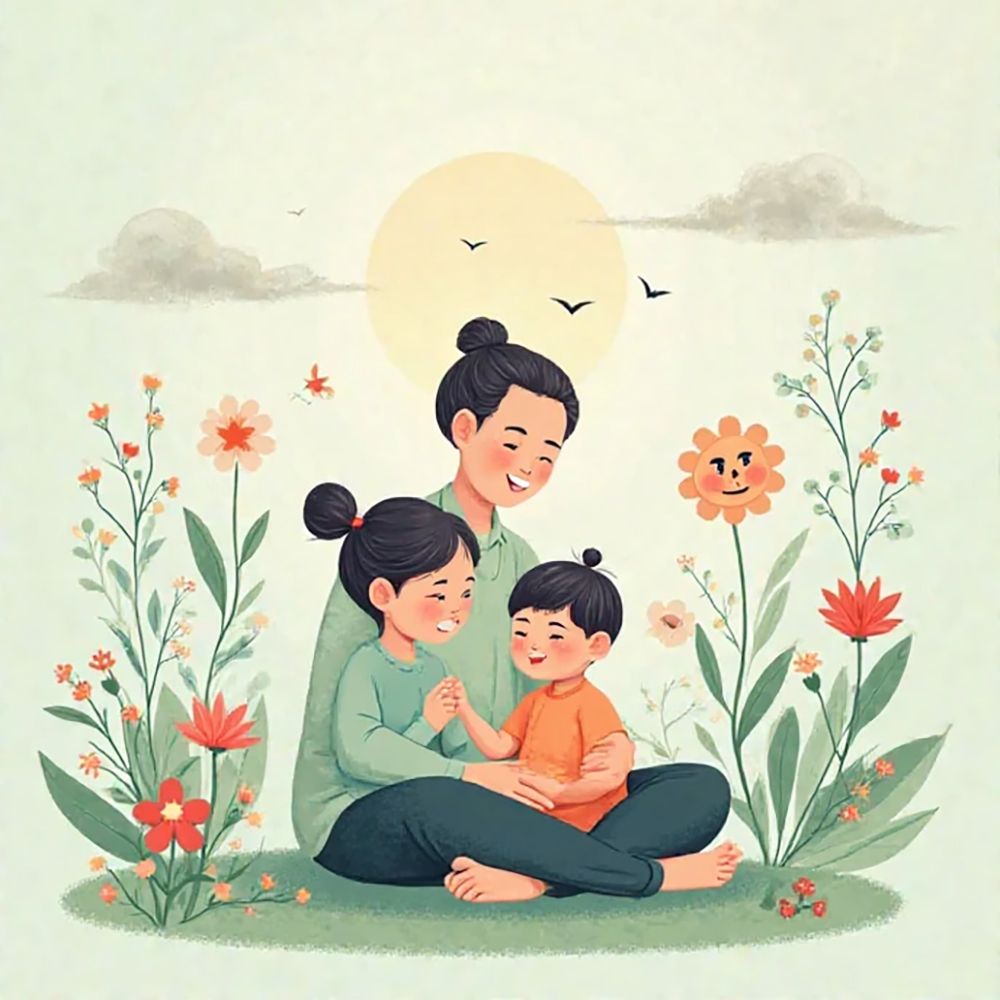I. Introduction: Allergic Constitution – The Invisible Threat to Modern Children’s Health
In today’s society, allergic constitution has become a common problem troubling many children and adults. Whether it’s allergic rhinitis, allergic asthma, chronic enteritis, or allergic urticaria, these chronic inflammations and allergic diseases not only affect quality of life but may also have long-term effects on a child’s growth and development.
II. The Relationship Between Pediatric Issues and Maternal Constitution: “Constitutional Inheritance” from a Traditional Chinese Medicine Perspective
1. The Impact of Maternal Constitution on the Fetus:
- Traditional Chinese Medicine Viewpoint: Traditional Chinese Medicine believes that the child absorbs the mother’s energy and constitution in the womb, so the mother’s physical condition directly affects the child’s constitution.
- Example:
- If the mother has a weak digestive system, the child is likely to have digestive issues after birth, such as indigestion, constipation, or diarrhea, though the manifestations may differ.
- If the mother has liver qi stagnation, the child may be born with congenital liver depression, manifesting as irritability and a bad temper.
- Example:
2. Case Analysis:
- Case One: Several mothers who enjoyed eating shrimp and crab during pregnancy found that their children developed allergic skin diseases after birth, which were difficult to cure.
- Analysis: Such issues are closely related to the mother’s constitution and are congenital problems, requiring more time and patience to address.
3. The Impact of Maternal Health on the Fetus:
- Suggestion: Mothers should pay attention to their health during pregnancy, avoid exposure to allergens, maintain good lifestyle and dietary habits, to reduce the risk of their children developing an allergic constitution.
III. How to Understand Pediatric Allergic Constitution?
1. Reviewing Pregnancy Conditions:
- Mothers can reflect on whether they paid attention to the following aspects during pregnancy:
- Diet: Whether they consumed too many foods that can cause allergies, such as seafood, mangoes, etc.
- Lifestyle: Whether they frequently stayed up late or overworked.
- Emotional State: Whether they experienced significant mood swings, such as anxiety or depression.
2. Understanding Personal Weaknesses:
- Mothers can infer the child’s potential weaknesses by observing their own health conditions, for example:
- Digestive Issues: If the mother has poor digestion, the child may also be prone to digestive problems.
- Liver Qi Stagnation: If the mother has liver qi stagnation, the child may be born with congenital liver depression, manifesting as emotional issues or excessive liver fire.
3. Applying Traditional Chinese Medicine Thinking:
- Mothers should learn traditional Chinese medicine knowledge with purpose and questions, applying what they learn to real life, for example:
- Observing the Tongue Coating: Understand changes in the child’s tongue coating to predict the onset of diseases in advance.
- Identifying Allergens: Avoid exposing the child to known allergens and observe their reactions to new foods.
IV. Analysis of Common Allergic Diseases from a Traditional Chinese Medicine Perspective
1. Allergic Rhinitis:
- Causes:
- Congenital Weak Constitution: The child has insufficient yang energy and weak resistance.
- Improper Treatment: After a cold, if not treated properly, the pathogenic factors are not completely cleared and linger near the nasal cavity, creating a “scorched battlefield,” leading to recurrent conditions that eventually develop into allergic rhinitis.
- Traditional Chinese Medicine Treatment Approach:
- Resolving Phlegm and Clearing Heat: Alleviate surface symptoms.
- Warming and Supplementing Yang Energy: Strengthen the constitution and boost immunity to address the root cause.
2. Allergic Urticaria:
- Causes:
- External Pathogenic Factors: After being exposed to cold or dampness, cold, damp, or heat pathogens linger under the skin.
- Insufficient Yang Energy: Poor metabolic function, unable to expel or internalize the pathogens.
- Triggering Factors:
- Consuming allergenic foods, using air conditioning, exposure to heat, etc.
3. Allergic Asthma:
- Causes:
- Unresolved Cough: Coughing is the body’s reaction to expel phlegm, but if not treated properly, the phlegm is not completely cleared and accumulates in the trachea.
- Interaction Between External Pathogens and Phlegm: When exposed to cold again, the external pathogens interact with the phlegm in the trachea, triggering an asthma attack.
- Traditional Chinese Medicine Treatment Approach:
- Resolving Phlegm and Stopping Cough: Clear phlegm from the body.
- Regulating Lung Qi: Enhance lung function and improve the respiratory system’s resistance.
4. Rapid High Fever:
- Causes:
- Unresolved Residual Issues: If previous illnesses were not thoroughly treated, the pathogens remain dormant in the body and erupt rapidly when triggered.
- Traditional Chinese Medicine Treatment Approach:
- Finding the Cause: Not just reducing the fever, but identifying the root cause of the high fever.
- Overall Regulation: Strengthen the constitution and boost immunity to prevent recurrence.
V. Correctly Viewing the Disease Recovery Process: Traditional Chinese Medicine is Not “Slow”
- Advantages of Traditional Chinese Medicine Treatment:
- Treating Both Symptoms and Root Causes: Traditional Chinese Medicine focuses not only on alleviating symptoms but also on addressing the root cause.
- Overall Regulation: Traditional Chinese Medicine emphasizes preventing disease recurrence through constitution regulation.
- Disease Recovery Speed:
- Different Diseases Recover at Different Speeds: Some inflammations can be quickly resolved, but some chronic diseases require longer regulation.
- Constitution Regulation Takes Time: Regulating the constitution is a gradual process that requires patience and persistence.
VI. Doctors are Not Just Healers, But Also Health Mentors
- Responsibilities of Doctors:
- Healing and Saving Lives: Addressing patients’ ailments.
- Health Education: Educating patients on proper health practices, helping them understand diseases correctly, and master self-care methods.
- Mindset Patients Should Have:
- Correct Understanding of Diseases: Understand the causes, development patterns, and treatment methods of diseases.
- Maintaining a Positive Attitude: Cooperate actively with treatment and be prepared for long-term regulation.
- Avoiding Excessive Anxiety: Understand that disease recovery is a process and avoid excessive worry due to recurring conditions.
VII. Allergic Constitution Care Guide: Starting with Lifestyle Details
1. Dietary Regulation:
- Avoiding Allergens: Identify and avoid known allergens.
- Eating Light and Easily Digestible Foods: Avoid spicy, greasy, and irritating foods.
- Eating More Spleen-Strengthening and Dampness-Removing Foods: Such as coix seed, red beans, yam, etc.
- Eating Fewer Cold Foods: Avoid cold drinks, ice cream, etc.
2. Lifestyle Adjustments:
- Regular Sleep Schedule: Ensure adequate sleep and avoid staying up late.
- Moderate Exercise: Strengthen the constitution and boost immunity, but avoid excessive exercise.
- Staying Warm: Avoid getting cold, especially during weather changes.
3. Emotional Management:
- Maintaining a Happy Mood: Avoid excessive mood swings and learn to regulate emotions.
- Reducing Stress: Learn to relax and avoid excessive tension and anxiety.
4. Preventive Measures:
- Preventing in Advance: Adjust clothing according to weather changes to avoid getting cold.
- Strengthening the Constitution: Regularly undergo traditional Chinese medicine treatments, such as moxibustion and massage.
VIII. Conclusion
Allergic constitution is not insurmountable; through traditional Chinese medicine’s syndrome differentiation and overall regulation, it can effectively improve a child’s constitution and reduce the risk of allergic diseases. Mothers should have confidence, start with lifestyle details, be strict with themselves, and actively cooperate with doctors’ treatment suggestions to help their children overcome allergies and enjoy a healthy and happy childhood.


Leave a Reply